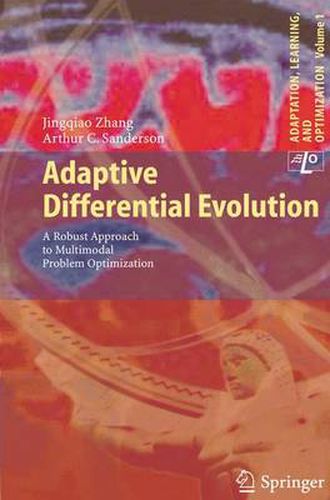Readings Newsletter
Become a Readings Member to make your shopping experience even easier.
Sign in or sign up for free!
You’re not far away from qualifying for FREE standard shipping within Australia
You’ve qualified for FREE standard shipping within Australia
The cart is loading…






This title is printed to order. This book may have been self-published. If so, we cannot guarantee the quality of the content. In the main most books will have gone through the editing process however some may not. We therefore suggest that you be aware of this before ordering this book. If in doubt check either the author or publisher’s details as we are unable to accept any returns unless they are faulty. Please contact us if you have any questions.
I ?rst met Jingqiao when he had just commenced his PhD research in evolutionary algorithms with Arthur Sanderson at Rensselaer. Jingqiao’s goals then were the investigation and development of a novel class of se- adaptivedi?erentialevolutionalgorithms,later calledJADE. I had remarked to Jingqiao then that Arthur always appreciated strong theoretical foun- tions in his research, so Jingqiao’s prior mathematically rigorous work in communications systems would be very useful experience. Later in 2007, whenJingqiaohadcompletedmostofthetheoreticalandinitialexperimental work on JADE, I invited him to spend a year at GE Global Research where he applied his developments to several interesting and important real-world problems. Most evolutionary algorithm conferences usually have their share of in- vative algorithm oriented papers which seek to best the state of the art - gorithms. The best algorithms of a time-frame create a foundation for a new generationof innovativealgorithms, and so on, fostering a meta-evolutionary search for superior evolutionary algorithms. In the past two decades, during whichinterest andresearchin evolutionaryalgorithmshavegrownworldwide by leaps and bounds, engaging the curiosity of researchers and practitioners frommanydiversescienceandtechnologycommunities,developingstand-out algorithms is getting progressively harder.
$9.00 standard shipping within Australia
FREE standard shipping within Australia for orders over $100.00
Express & International shipping calculated at checkout
This title is printed to order. This book may have been self-published. If so, we cannot guarantee the quality of the content. In the main most books will have gone through the editing process however some may not. We therefore suggest that you be aware of this before ordering this book. If in doubt check either the author or publisher’s details as we are unable to accept any returns unless they are faulty. Please contact us if you have any questions.
I ?rst met Jingqiao when he had just commenced his PhD research in evolutionary algorithms with Arthur Sanderson at Rensselaer. Jingqiao’s goals then were the investigation and development of a novel class of se- adaptivedi?erentialevolutionalgorithms,later calledJADE. I had remarked to Jingqiao then that Arthur always appreciated strong theoretical foun- tions in his research, so Jingqiao’s prior mathematically rigorous work in communications systems would be very useful experience. Later in 2007, whenJingqiaohadcompletedmostofthetheoreticalandinitialexperimental work on JADE, I invited him to spend a year at GE Global Research where he applied his developments to several interesting and important real-world problems. Most evolutionary algorithm conferences usually have their share of in- vative algorithm oriented papers which seek to best the state of the art - gorithms. The best algorithms of a time-frame create a foundation for a new generationof innovativealgorithms, and so on, fostering a meta-evolutionary search for superior evolutionary algorithms. In the past two decades, during whichinterest andresearchin evolutionaryalgorithmshavegrownworldwide by leaps and bounds, engaging the curiosity of researchers and practitioners frommanydiversescienceandtechnologycommunities,developingstand-out algorithms is getting progressively harder.